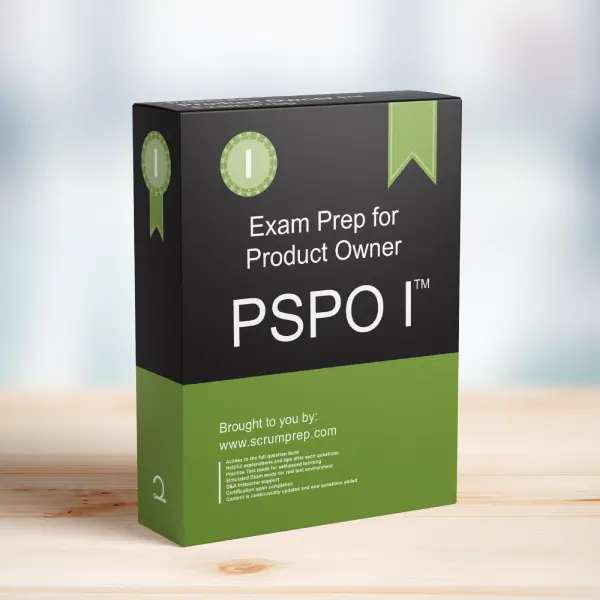Importance of Ordering Product Backlog Items by Value Points
Ordering Product Backlog items by value points is a practice that can help Product Owners prioritize work that is likely to provide the most value. However, it is essential to understand the role of empiricism and feedback in Scrum to make informed decisions.
Exam Question
How important is it for a Product Owner to order Product Backlog items by value points? (choose the best answer)
- A. Calculating value points is an upfront approach that conflicts with the empiricism of Scrum, and is therefore not acceptable.
- B. It is a good practice, keeping in mind that market reception is the best measure of value.
- C. Using value points is the ultimate way for a Product Owner to predict the value that the product will provide.
Correct Answer
B. It is a good practice, keeping in mind that market reception is the best measure of value.
Explanation
Why B is Correct
B. It is a good practice, keeping in mind that market reception is the best measure of value:
Ordering Product Backlog items by value points can be helpful in prioritizing work that is expected to deliver the most value. However, the ultimate measure of value comes from how well the product is received in the market. Empirical feedback from users and stakeholders should guide the Product Owner in making informed decisions about future ordering.
Why A and C are Incorrect
A. Calculating value points is an upfront approach that conflicts with the empiricism of Scrum, and is therefore not acceptable:
While relying solely on upfront calculations can conflict with Scrum’s empirical approach, using value points as one of many factors to prioritize the Product Backlog is not inherently against Scrum principles.
C. Using value points is the ultimate way for a Product Owner to predict the value that the product will provide:
Value points are useful, but they are not the ultimate way to predict value. The actual reception and feedback from the market provide a more accurate measure of value, aligning with Scrum’s empirical approach.
Key Points
- Empirical Feedback: Market reception and stakeholder feedback are crucial in determining the true value of the product.
- Balancing Factors: While value points are helpful, they should be balanced with other considerations like dependencies, risks, and market changes.
- Iterative Adjustments: The Product Backlog should be continually adjusted based on empirical data to maximize the flow of value.
Responsibilities in Scrum
- Product Owner: Maximizes the flow of value by ordering the Product Backlog considering various factors, including value points, market feedback, and business goals. Ensures the Product Backlog reflects the most valuable and urgent work needed to achieve the product vision.
- Scrum Master: Supports the Product Owner in understanding and implementing effective backlog management practices. Coaches the Scrum Team on the importance of delivering value incrementally and iteratively.
- Developers: Collaborate with the Product Owner to understand the value and business context of the Product Backlog items. Focus on delivering high-quality increments that meet the Definition of Done and provide value.
Relevance to the PSPO I Exam
Understanding the importance of ordering Product Backlog items by value points is relevant for the PSPO I exam. It tests the Product Owner’s ability to prioritize work effectively, balancing multiple factors to maximize value delivery. Recognizing that market reception and empirical feedback are crucial in guiding these decisions is fundamental to the role.
Conclusion
While ordering Product Backlog items by value points can be beneficial, it is essential to consider it as one of many factors influencing the flow of value. Empirical feedback from the market and stakeholders ultimately guides the Product Owner in making informed decisions to maximize product success.
For comprehensive preparation and practice exams, check out PSPO I Exam Prep to enhance your understanding and application of Scrum principles.


